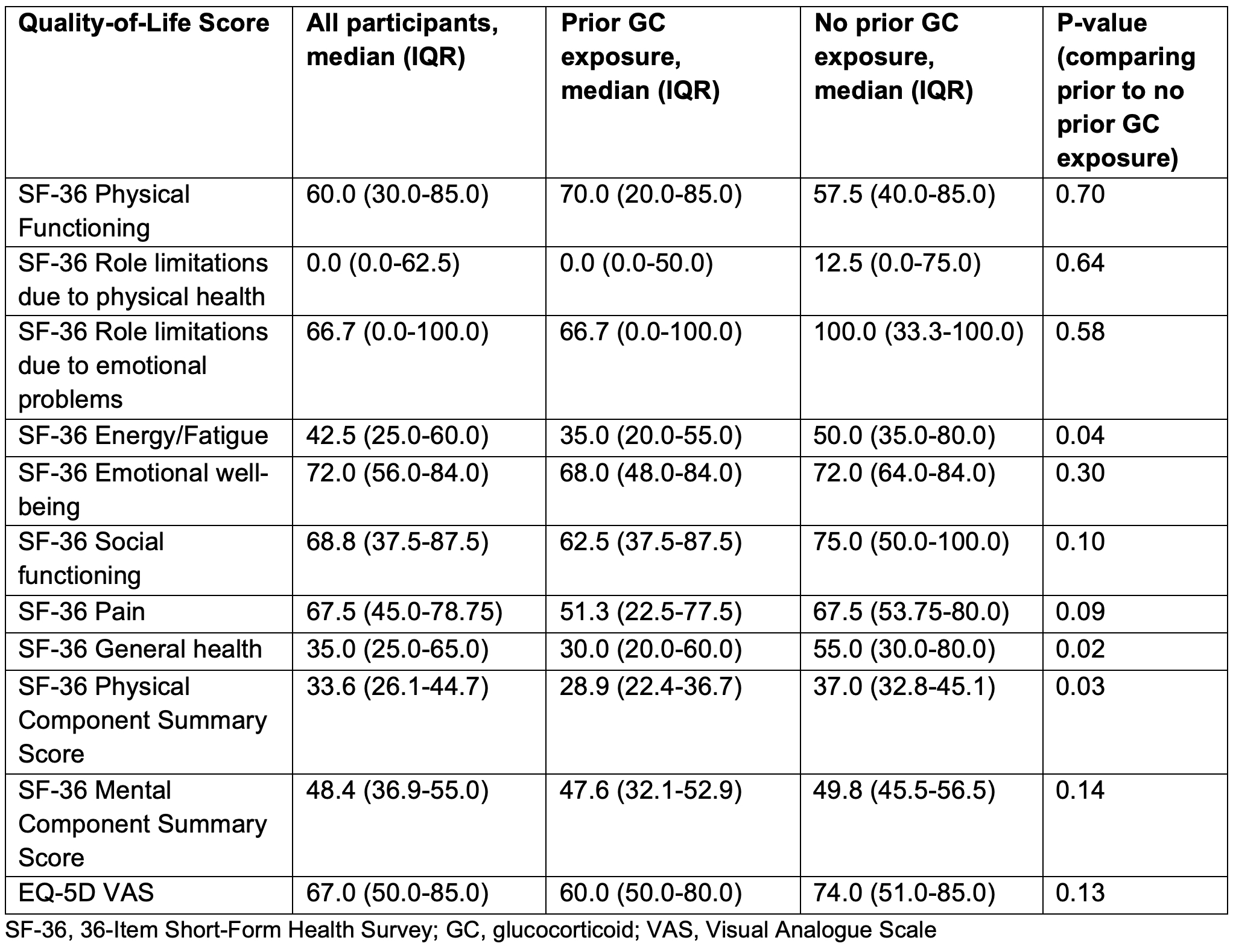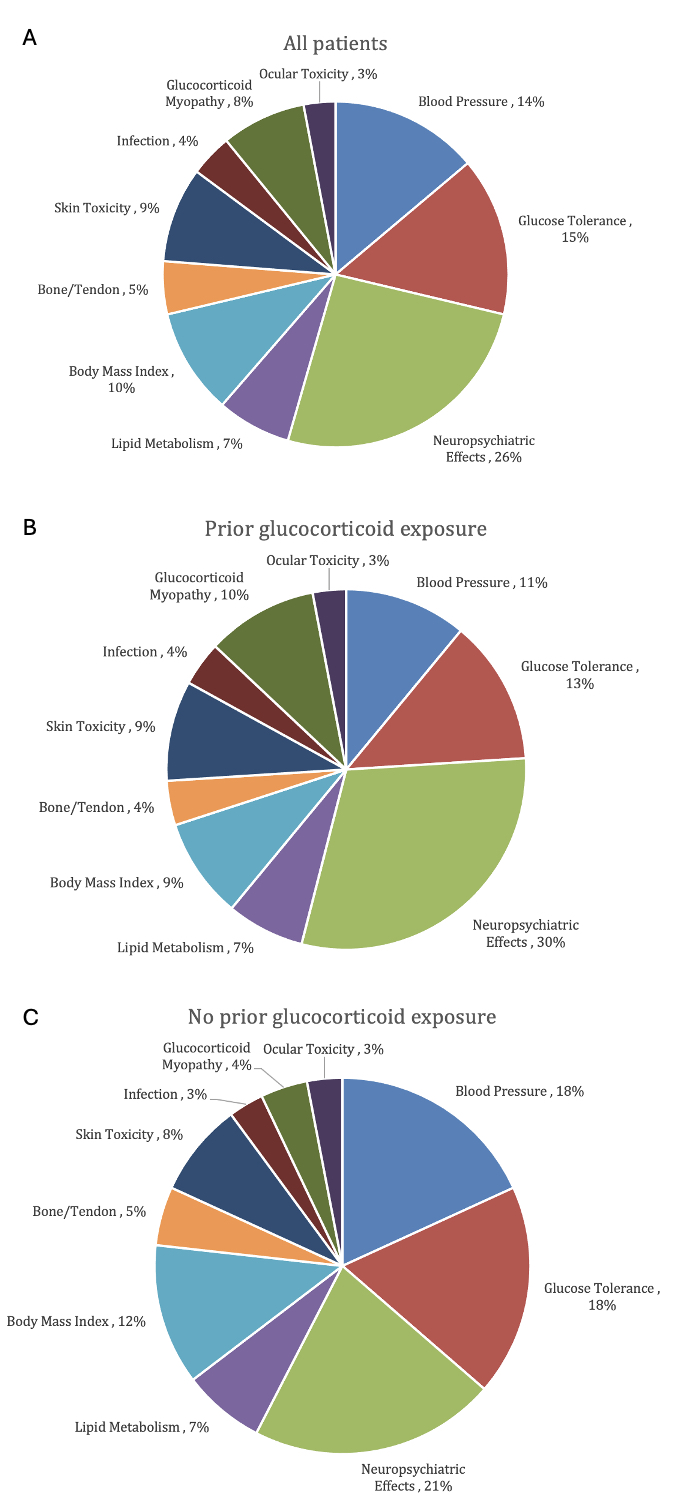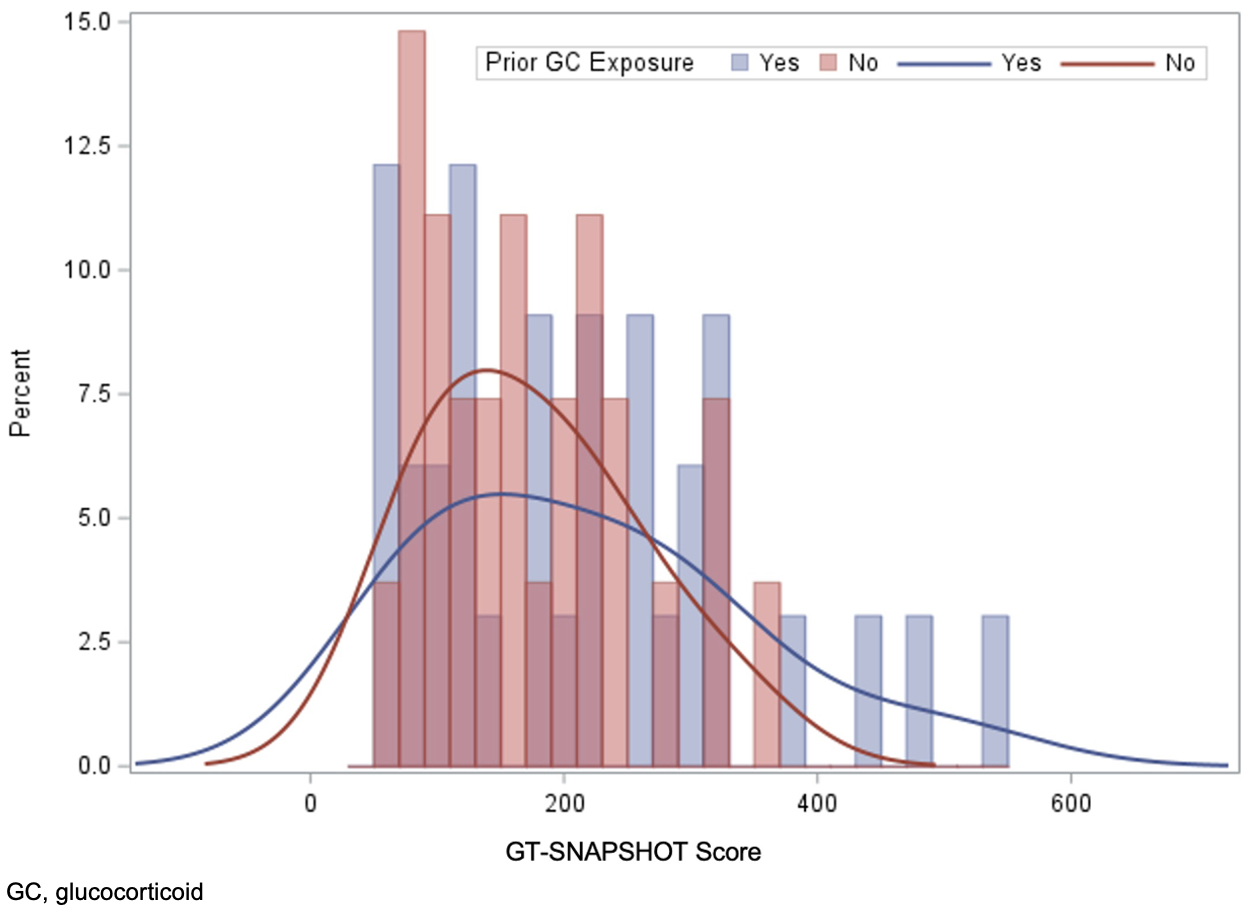Session Information
Session Type: Poster Session C
Session Time: 10:30AM-12:30PM
Background/Purpose: Glucocorticoids (GC) are a backbone of treatment regimens for many rheumatic diseases despite their association with toxicities that contribute to excess morbidity and mortality. The experience with standardized assessments of GC toxicity in real-world data is limited.
Methods: We established a prospective cohort of adult patients with rheumatic diseases who were initiating or receiving ongoing GC treatment within a large academic healthcare system. GC toxicity is assessed using the STOX® Suite of validated clinical outcome assessments of steroid-toxicity, including the Glucocorticoid Toxicity (GT)-SNAPSHOT at baseline and the Glucocorticoid Toxicity Index (GTI) longitudinally. We report the baseline characteristics of first 60 patients enrolled in the LONG-TOX cohort to date, describing the differences in baseline GT-SNAPSHOT scores and quality-of-life between those with and without GC exposure prior to enrollment.
Results: We evaluated the first 60 patients enrolled in LONG-TOX. The mean age was 59.2 years, and 34 (57%) were female. Most individuals (54, 90%) were white and 2 (3%) were Hispanic. The most common rheumatic diseases were PMR and/or GCA (38%) and ANCA-associated vasculitis (13%). Approximately half (55%) of the cohort had used GCs before their current taper, and 45% were receiving their first GC course. The majority (80%) had active disease at the time of enrollment. Median (IQR) baseline GT-SNAPSHOT scores were 188.0 (116.0, 269.5), with greatest contributions from the Neuropsychiatric Effects, Glucose Tolerance, and Blood Pressure domains (Figure 1). The Short Form-36 [SF-36] Mental and Physical component summary [MCS, PCS] scores were 48.4 and 33.6, respectively (Table). Compared to those without a prior history of GC exposure, those with prior GC exposure had numerically higher (i.e., worse) median GT-SNAPSHOT scores at baseline (205.0 vs. 178.0, p=0.31) (Figure 2). Those with prior GC exposure also had significantly lower (i.e., worse) quality-of-life as measured by the SF-36 Energy/Fatigue and General Health scales and the SF-36 PCS (28.9 vs. 37.0, p=0.03).
Conclusion: We have established a novel cohort of patients with inflammatory diseases to prospectively assess the impact of GC use on treatment-related toxicity, health-related quality of life, and healthcare resource utilization. Those with prior GC exposure had higher baseline degree of GC-related toxicity and lower quality-of-life on multiple SF-36 scales. Initial results indicate that this novel cohort captures important patient-reported and clinician-reported outcomes that will contribute to an improved understanding of the impact of GCs and their associated toxicities.
To cite this abstract in AMA style:
Patel N, Lin M, Jiang B, Jha I, McMahon G, McMahon A, Zhang Y, Choi H, Wallace Z, Stone J. A Novel Cohort to Assess Longitudinal Glucocorticoid Toxicity in Individuals with Rheumatic Diseases: Objectives, Design, and Initial Baseline Characteristics [abstract]. Arthritis Rheumatol. 2024; 76 (suppl 9). https://acrabstracts.org/abstract/a-novel-cohort-to-assess-longitudinal-glucocorticoid-toxicity-in-individuals-with-rheumatic-diseases-objectives-design-and-initial-baseline-characteristics/. Accessed .« Back to ACR Convergence 2024
ACR Meeting Abstracts - https://acrabstracts.org/abstract/a-novel-cohort-to-assess-longitudinal-glucocorticoid-toxicity-in-individuals-with-rheumatic-diseases-objectives-design-and-initial-baseline-characteristics/



